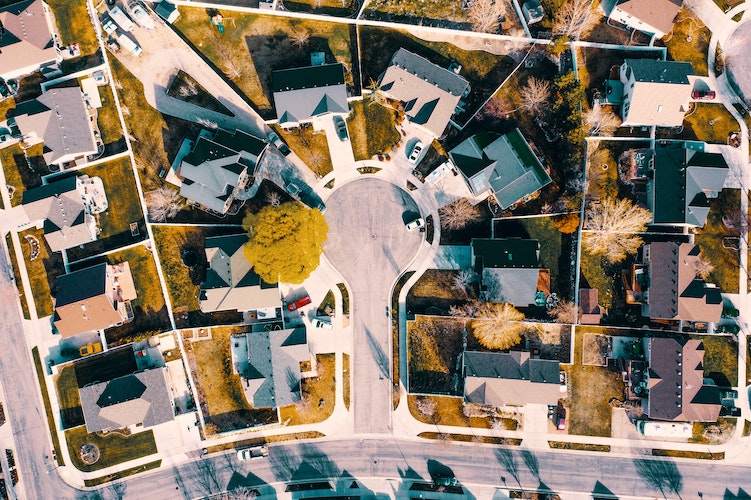
Building Stronger Communities: How to Be a Good Neighbor
Living in a community means more than simply residing next to one another. It involves building connections, fostering a sense of belonging, and actively contributing to the well-being of your neighbors. Being a good neighbor goes beyond being friendly; it means taking steps to ensure the safety, security, and harmony of your community. In this guide, we will explore practical ways to be a good neighbor, promoting security, trust, and peace of mind for everyone involved. By implementing these principles, you can help create a supportive and resilient neighborhood where neighbors look out for one another.
Cultivating Awareness and Communication: Neighborly Bonds: Cultivating Awareness and Communication
Being a good neighbor starts with being aware of your surroundings and maintaining open lines of communication. Take the time to introduce yourself to your neighbors and establish friendly connections. Stay informed about community events, meetings, and local news. Actively engage in conversations and be approachable, offering a helping hand or a listening ear when needed. By fostering open lines of communication and cultivating awareness, you create an environment where neighbors can rely on one another for support.
Promoting Safety and Security: Safe Havens: Promoting Safety and Security
A crucial aspect of being a good neighbor is promoting safety and security within your community. Be vigilant and report any suspicious activity to the appropriate authorities. Encourage your neighbors to do the same, as a collective effort enhances the overall security of the neighborhood. Consider organizing neighborhood watch programs or establishing communication channels to share important safety information. By actively promoting safety and security, you contribute to a protected and secure environment for all.
Respecting Privacy and Boundaries: Boundaries and Balance: Respecting Privacy and Boundaries
Respecting privacy and boundaries is essential for maintaining harmonious relationships with your neighbors. Avoid intrusive behavior and always ask for permission before entering someone else’s property. Be mindful of noise levels and keep outdoor activities within reasonable hours. Respect shared spaces and community rules, ensuring everyone can enjoy the common areas without interference. By honoring privacy and boundaries, you contribute to a peaceful and respectful living environment.
Caring for the Neighborhood: Nurturing the Community: Caring for the Neighborhood
Take pride in your neighborhood and actively contribute to its care and upkeep. Participate in community clean-up initiatives or organize neighborhood beautification projects. Offer assistance to elderly or disabled neighbors who may need help with tasks like yard work or snow removal. Keep your own property well-maintained, as it reflects the overall appearance of the neighborhood. By caring for the neighborhood, you foster a sense of pride and unity among neighbors.
Being Mindful of Parking and Traffic: Parking Harmony: Being Mindful of Parking and Traffic
Parking and traffic can sometimes become sources of tension in neighborhoods. Be considerate when parking your vehicles, ensuring they do not obstruct driveways or limit visibility. Follow local parking regulations and encourage your visitors to do the same. Be mindful of speed limits and pedestrian safety, especially in residential areas. By being conscientious of parking and traffic, you contribute to a safer and more efficient neighborhood environment.
Offering Assistance and Support: A Helping Hand: Offering Assistance and Support
Being a good neighbor means being there for one another in times of need. Offer assistance and support to your neighbors, especially during challenging situations such as illness, loss, or emergencies. Help with tasks like collecting mail or watering plants for neighbors who are away. Organize neighborhood events or gatherings to foster community bonds and strengthen relationships. By offering assistance and support, you create a network of trust and reliability within your neighborhood.
Resolving Conflicts Amicably: Peaceful Solutions: Resolving Conflicts Amicably
Conflicts may arise in any community, but being a good neighbor means addressing them in a respectful and constructive manner. Approach conflicts with an open mind and a willingness to listen. Engage in calm and respectful discussions, seeking common ground and compromise. If necessary, involve neutral third parties or mediators to help find peaceful solutions. By resolving conflicts amicably, you contribute to a harmonious and cohesive neighborhood.
Celebrating Diversity and Inclusion: Unity in Diversity: Celebrating Diversity and Inclusion
Embrace the diversity within your neighborhood and celebrate the various cultures, backgrounds, and traditions of your neighbors. Organize community events that showcase and honor this diversity. Foster an inclusive environment where everyone feels welcome and valued. Encourage dialogue and understanding among neighbors, promoting a sense of unity and acceptance. By celebrating diversity and inclusion, you create a neighborhood that thrives on mutual respect and appreciation.
Building a Resilient Community: Stronger Together: Building a Resilient Community
Being a good neighbor means actively contributing to the resilience of your community. Support local businesses and initiatives, as they play a vital role in the neighborhood’s well-being. Engage in community projects, such as disaster preparedness or environmental conservation efforts. Participate in neighborhood associations or committees to address common concerns and make collective decisions. By building a resilient community, you ensure that your neighborhood can overcome challenges and thrive together.
Being a good neighbor goes beyond the simple act of living next to someone. It involves actively contributing to the well-being, security, and harmony of your community. By cultivating awareness and communication, promoting safety and security, respecting privacy and boundaries, caring for the neighborhood, being mindful of parking and traffic, offering assistance and support, resolving conflicts amicably, celebrating diversity and inclusion, and building a resilient community, you can foster a sense of trust, reliability, and peace of mind among your neighbors. Together, you can create a neighborhood that thrives on unity, support, and a shared commitment to creating a safe and welcoming environment for all.



